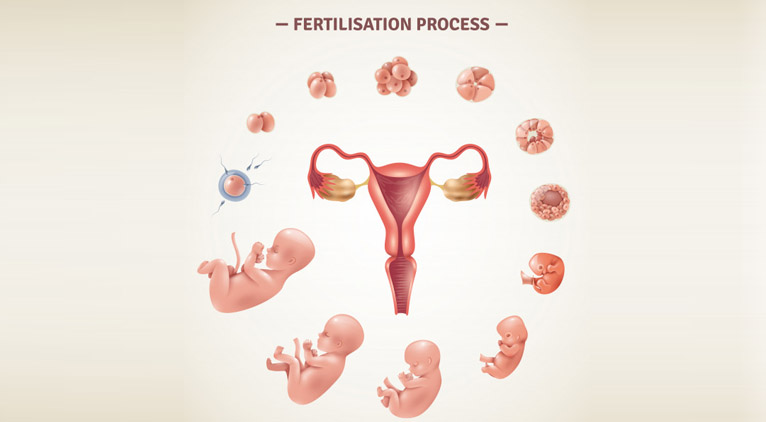Infertility is not an inconvenience; it is a disease of the reproductive system that impairs the body's ability to perform the basic function of reproduction.
What is Infertility?
Infertility is the result of a disease (an interruption, cessation, or disorder of body functions, systems, or organs) of the male or female reproductive tract which prevents the conception of a child or the ability to carry a pregnancy to delivery. The duration of unprotected intercourse with failure to conceive should be about 12 months before an infertility evaluation is undertaken, unless medical history, age, or physical findings dictate earlier evaluation and treatment.
How common is infertility?
Infertility affects 10%-15% of couples. This makes it one of the most common diseases for people between the ages of 20 and 45. In addition, the longer a woman tries to get pregnant without conceiving, the lower are her chances to get pregnant without medical treatment. Most (85%) couples with normal fertility will conceive within a year of trying. If a couple doesn’t conceive in the first year, their chance of conceiving gets lower each month. This happens more quickly as the woman gets older.
What Causes Infertility?
Infertility is the inability to conceive after 12 months of unprotected intercourse. This means that a couple is not able to become pregnant after a year of trying. However, for women aged 35 and older, the inability to conceive after 6 months is generally considered infertility.
No one can be blamed for infertility any more than anyone is to blame for diabetes or leukemia. In rough terms, about one-third of infertility cases can be attributed to male factors and about one-third to factors that affect women. For the remaining one-third of infertile couples, infertility is caused by a combination of problems in both partners or, in about 20 percent of cases, is unexplained.
How is Infertility Diagnosed?
Couples are generally advised to seek medical help if they are unable to achieve pregnancy after a year of unprotected intercourse. The doctor will conduct a physical examination of both partners to determine their general state of health and to evaluate physical disorders that may be causing infertility. Usually, both partners are interviewed about their sexual habits in order to determine whether intercourse is taking place properly for conception.
If no cause can be determined at this point, more specific tests may be recommended. For women, these include an analysis of body temperature and ovulation, x-ray of the fallopian tubes and uterus, and laparoscopy. For men, initial tests focus on semen analysis.
How is Infertility Treated?
Most infertility cases -- 85 to 90 percent -- are treated with conventional therapies, such as drug treatment or surgical repair of reproductive organs.
What is In Vitro Fertilization?
In infertile couples where women have blocked or absent fallopian tubes, or where men have low sperm counts, in vitro fertilization (IVF) offers a chance at parenthood to couples who until recently would have had no hope of having a "biologically related" child.
In IVF, eggs are surgically removed from the ovary and mixed with sperm outside the body in a Petri dish ("in vitro" is Latin for "in glass"). After about 40 hours, the eggs are examined to see if they have become fertilized by the sperm and are dividing into cells. These fertilized eggs (embryos) are then placed in the woman's uterus, thus bypassing the fallopian tubes.
What if my eggs don’t fertilize?
Most eggs will fertilize when they are placed in a culture dish with several thousand normal sperm. This process is called “in vitro fertilization” or “IVF.” When there are not enough normal functioning sperm for IVF, fertilization will usually occur after a single live sperm is injected into each egg, termed “intracytoplasmic sperm injection” or “ICSI.” On rare occasions, fertilization does not occur even with ICSI, presumably because of a problem inherent to either eggs or sperm. In these cases, the use of donor sperm or donor eggs will usually result in fertilization. Your fertility specialist and IVF laboratory personnel will help you determine which approach is most likely to result in egg fertilization.
What impact does infertility have on psychological well-being?
Infertility often creates one of the most distressing life crises a couple has faced. The long-term inability to conceive a child can evoke significant feelings of loss. Coping with the multitude of medical decisions and the uncertainties that infertility brings can create great emotional upheaval for most couples. Many couples experience anxiety, depression, and feelings of being out of control or isolated.
Also read: Am I at Risk for Fertility Problems?
Back to All ArticlesAbout Dr Bedekar Fertility Solution and IVF Clinic Thane:
Dr Bedekar Fertility Solution and IVF Clinic Thane is One of Best Fertility Clinic in Thane, Mumbai.
We Provide Treatment for IVF, ICSI, (IUI), Egg Donation, Semen Analysis, TESE / PESA etc.
Do get in touch to book appointment with our Experienced team of doctors. Talk to us on 022- 25423260 or Whatsapp us on +91 9820382434 or email us at mahesh_bedekar@yahoo.com
Happy to help!



